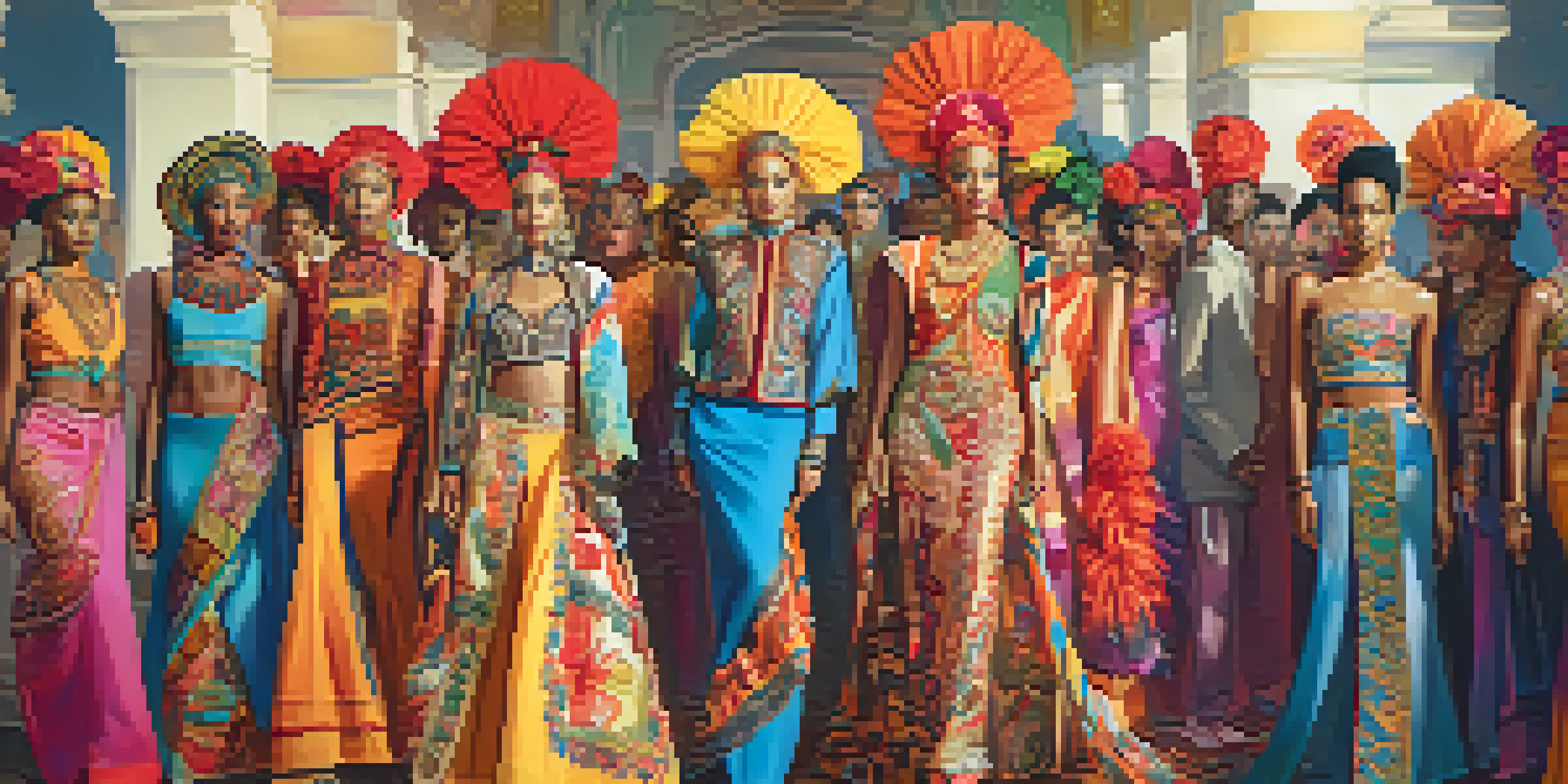Creating Inclusive Fashion: A Cultural Sensitivity Approach

Understanding Cultural Sensitivity in Fashion
Cultural sensitivity in fashion involves recognizing and respecting the diverse backgrounds and traditions that influence style. It’s about appreciating the stories behind garments and understanding their significance to different communities. By embracing cultural sensitivity, designers can create pieces that celebrate diversity rather than appropriate it, fostering a more inclusive fashion landscape.
The Importance of Representation in Fashion
Representation in fashion is crucial as it allows various cultures to be seen and appreciated in mainstream media. When people from diverse backgrounds see themselves represented in fashion, it builds a sense of belonging and validation. This representation can lead to a more expansive view of beauty and style, encouraging brands to create designs that resonate with a broader audience.
Embrace Cultural Sensitivity
Cultural sensitivity in fashion fosters an appreciation for diverse backgrounds and traditions, allowing designers to celebrate rather than appropriate cultural elements.
Avoiding Cultural Appropriation in Design
Cultural appropriation occurs when elements from one culture are used by another, often without understanding or respect. This can lead to the commodification of sacred symbols or traditional attire, stripping them of their meaning. To avoid this, designers should engage with cultural representatives and seek permission or collaboration, ensuring that they honor the heritage behind the designs.
Engaging with Local Communities
One effective way to create inclusive fashion is by engaging directly with local communities. This collaboration allows designers to learn about the cultural significance of specific styles and materials. By involving these communities in the design process, brands can create pieces that authentically represent their heritage while also offering economic support to local artisans.
Representation Matters
Having diverse representation in fashion helps individuals feel a sense of belonging and broadens the understanding of beauty and style.
The Role of Education in Fashion Inclusivity
Education plays a vital role in fostering cultural sensitivity within the fashion industry. By educating designers, brands, and consumers about the importance of cultural respect, we can cultivate a more inclusive environment. Workshops, seminars, and online resources can help individuals understand the nuances of cultural representation and the impact of their choices.
Celebrating Diversity Through Fashion Shows
Fashion shows can serve as powerful platforms for celebrating diversity and inclusive design. By featuring models from various backgrounds and showcasing culturally inspired collections, brands can send a message of acceptance and appreciation. These events not only highlight the beauty of diversity but also inspire others in the industry to follow suit.
Involve Local Communities
Engaging with local communities in the design process ensures authenticity and provides economic support, creating inclusive fashion that respects cultural heritage.
Building Inclusive Brands Beyond Clothing
Creating inclusive fashion goes beyond just clothing; it involves building brands that reflect diverse values and ethics. This includes sustainable practices, ethical labor, and promoting body positivity. When brands commit to inclusivity in all aspects of their business, they create a more welcoming space for everyone, encouraging a culture of respect and appreciation.
The Future of Inclusive Fashion
The future of inclusive fashion looks promising as more brands recognize the importance of cultural sensitivity. As consumers increasingly demand transparency and respect from the brands they support, the industry will likely evolve to meet these expectations. By prioritizing inclusivity, fashion can become a vibrant tapestry that honors and celebrates the richness of every culture.